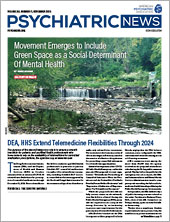Research has shown that movies are capable of much more than entertainment; they can influence our attitudes, behaviors, and ideologies in positive (and negative) ways and trigger a multitude of emotions including happiness, sadness, and anger.
A landmark event in the history of moviemaking was the invention of animation, aimed primarily at a particular target audience: children. Walt Disney movies have long been a part of millions of people’s lives and moved into other areas, such as television, theme parks, cruise ships, consumer products, publishing, and international operations.
The first full-length Walt Disney animated feature, “Snow White and the Seven Dwarfs,” was released in 1937. The film culminates in the iconic kiss that awakens Snow White from her slumber and births the now familiar theme of the hopeful princess waiting for her prince and her undisputable “happily ever after.”
During the near century that followed, Disney continued its legacy of quintessential movies featuring this overwhelmingly heteronormative model. Disney never included an LGBTQ+ identifying character until 2022, when “Strange World” was released, featuring Disney’s first openly gay character.
A recent event involving the screening of “Strange World” in a Florida fifth grade classroom in May led to the public investigation of the involved teacher and an uproar in the debate about early educational introduction of sexual and gender identities to children in schools. As
reported in the
Washington Post, this event occurred amid ongoing politically charged anti-LGBTQ+ legislation and regulations including Florida’s “Don’t Say Gay” law, which bans instruction about gender identity and sexual orientation in public schools. The involved teacher stated that she had showed the movie to her students because it tells the story of a family of explorers and her class curriculum had been focusing on ecosystems and the environment. One of the parents complained that the gay character featured in the movie stripped her 10-year-old child of “innocence.”
Florida’s “Don’t Say Gay” law is only one example of the many measures that have been implemented across the United States that are greatly harmful to the LGBTQ+ community, especially youth. Amit Paley, CEO of the
Trevor Project, an LGBTQ+ youth suicide prevention organization, stated that “when lawmakers treat LGBTQ+ topics as taboo, … it only adds to the existing stigma and discrimination, which puts LGBTQ+ young people at greater risk for bullying, depression, and suicide.”
Although educational exposure may lead to earlier recognition of alternative sexual attraction and gender identification, there are no evidence-based studies validating direct alteration of either through exposure or education. This has been further supported by a
position statement of the Association of LGBTQ+ Psychiatrists (AGLP) in 2023. The concern that the exposure of children to a homosexual character (or a heterosexual one for that matter) through movies might impact the prospective development of their sexual and gender identity is an entirely unfounded concept. Gender identity develops as early as age 3, and sexual orientation shapes mostly in early adolescence.
For nearly 100 years, Disney animated movies have been publicly broadcasting heterosexual love stories and relationships that most LGBTQ+ identifying people watched as children. It is clear that children’s exposure to heteronormative concepts does not necessarily dictate their lifelong experiences with gender and sexuality.
We extrapolate two significant points thus far from evidence-based literature: (1) engaging with fictional characters’ stories on the screen can trigger understanding and empathy in the viewer through mirroring, and (2) exposure of children to romantic relationships of any kind through film has no known effect on the development of their sexuality and gender identity.
As such, it appears that the benefits of representation of minoritized groups in movies far outweigh any potential risks. In fact, multiple studies have shown that representation of minoritized groups in movies increases acceptance and decreases stigma. Representation of LGBTQ+ individuals specifically has been linked to decreased homophobia, according to a 2018
study by Goran Madžarević and María T. Soto-Sanfiel in
Sexuality and Culture.
Perhaps it is time we embrace movies as an avenue for empathy, understanding, and acceptance and depict couples of diverse sexual orientation and gender diversity whose love stories have their happy ending. ■

